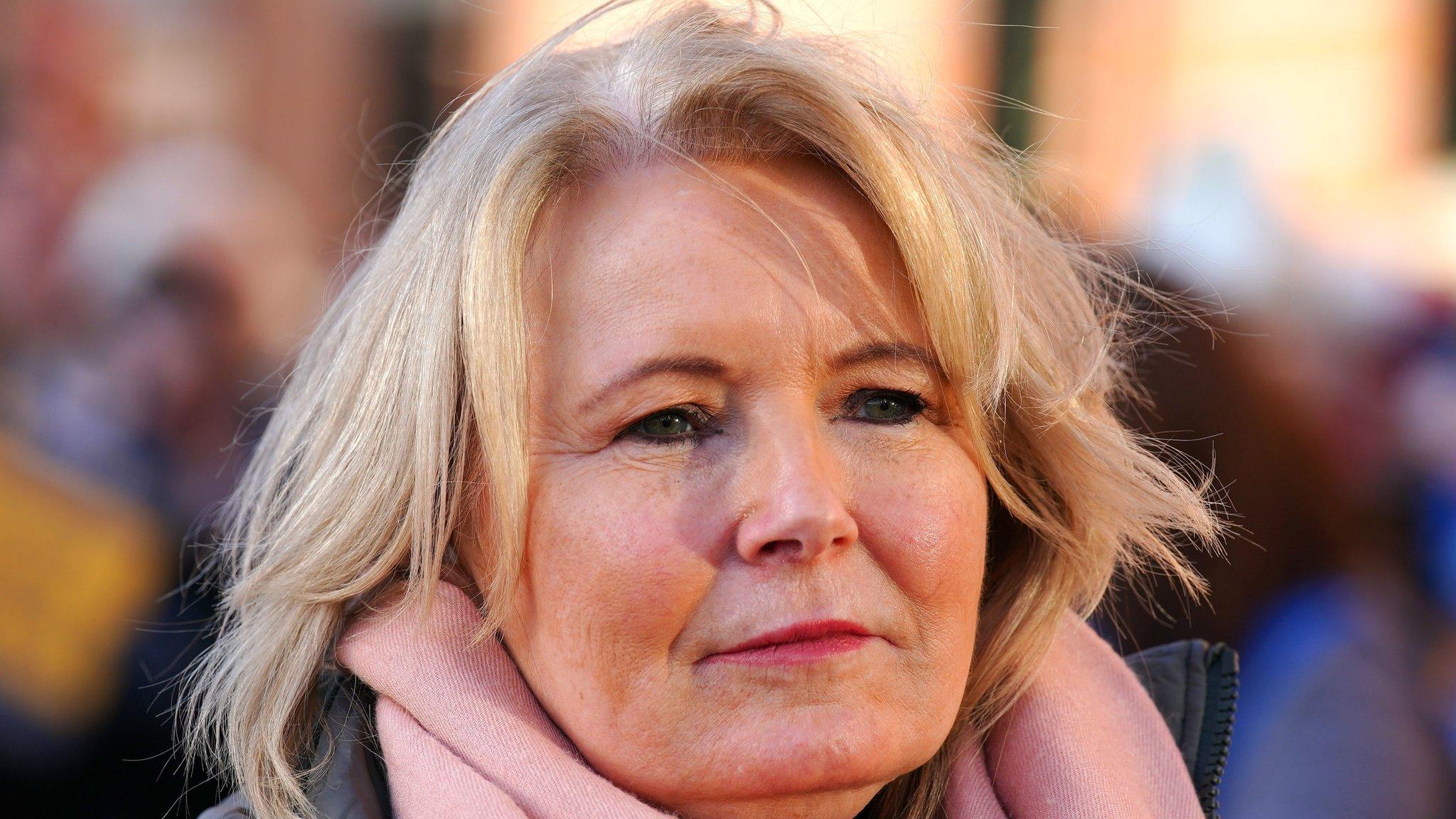Nurses' strikes could continue till Christmas, warns RCN union leader
- Published
Watch: Strike action will not be paused - Pat Cullen
Nurses could strike until Christmas, said the Royal College of Nursing's leader, as she warned it would not pause a 48-hour strike in England over the first May bank holiday.
General secretary Pat Cullen told the BBC the government needed to put more money on the table.
But she had "no plans" to co-ordinate strikes with those by junior doctors.
Conservative party chairman Greg Hands said the government's pay offer was "fair and reasonable".
Asked whether it is was a final offer, he told the BBC's Sunday with Laura Kuenssberg the government needed to wait to see what other heath service unions involved in the pay dispute decided in their ballots and pointed out it had already been accepted by Unison members.
The government has offered a 5% pay rise in 2023/24 and one-payment of at least £1,655.
The RCN leader had initially called for this deal to be accepted but members voted to reject it by 54% to 46%, while the Unite and the GMB unions will announce the result of their ballots in two weeks' time.
Shadow health secretary Wes Streeting told the same programme he was "really worried" about strike action by nurses and not in support of it because of the risks to patients' safety.
The RCN strike will involve NHS nurses in emergency departments, intensive care, cancer and other wards, which would be a first as the previous nurses' strike in February included exemptions to maintain staffing in critical areas.
Speaking to Laura Kuenssberg, Mr Hands said the offer amounted to an extra £5,100 for a typical band 5 NHS worker.
Health Secretary Steve Barclay also said in a letter to the RCN, external that a nurse at the top of band 5 would get "over £5,000" extra.
He added he would welcome a meeting with the RCN and feared no strike exemptions will "put patients at risk".
Ms Cullen said that after the walkout from 20:00 BST on 30 April to 20:00 on 2 May, the union would "move immediately to ballot our members" on their next move.
"If that ballot is successful it will mean further strike action right up until Christmas," she added.
She rejected calls from ministers to pause strike action, revealing she had received a letter from Mr Barclay asking for this half-an-hour before she came on air.
She said the letter was "disrespectful" to nurses and claimed the health secretary had spent longer writing in the Sun on Sunday, external newspaper than responding to nurses.
In the paper, Mr Barclay warned the strikes would mean more cancelled operations and postponed treatment - and "none of this is good for the NHS or patients".
Ms Cullen urged the health secretary and the government to join her union at the negotiating table "very quickly", adding: "And start to put more money on the table, start treat nurses with a bit of decency and a bit of respect."
Asked why RCN nurses rejected the government's pay offer despite the union's leadership recommending it, Ms Cullen said the members believed it was "neither fair nor reasonable".
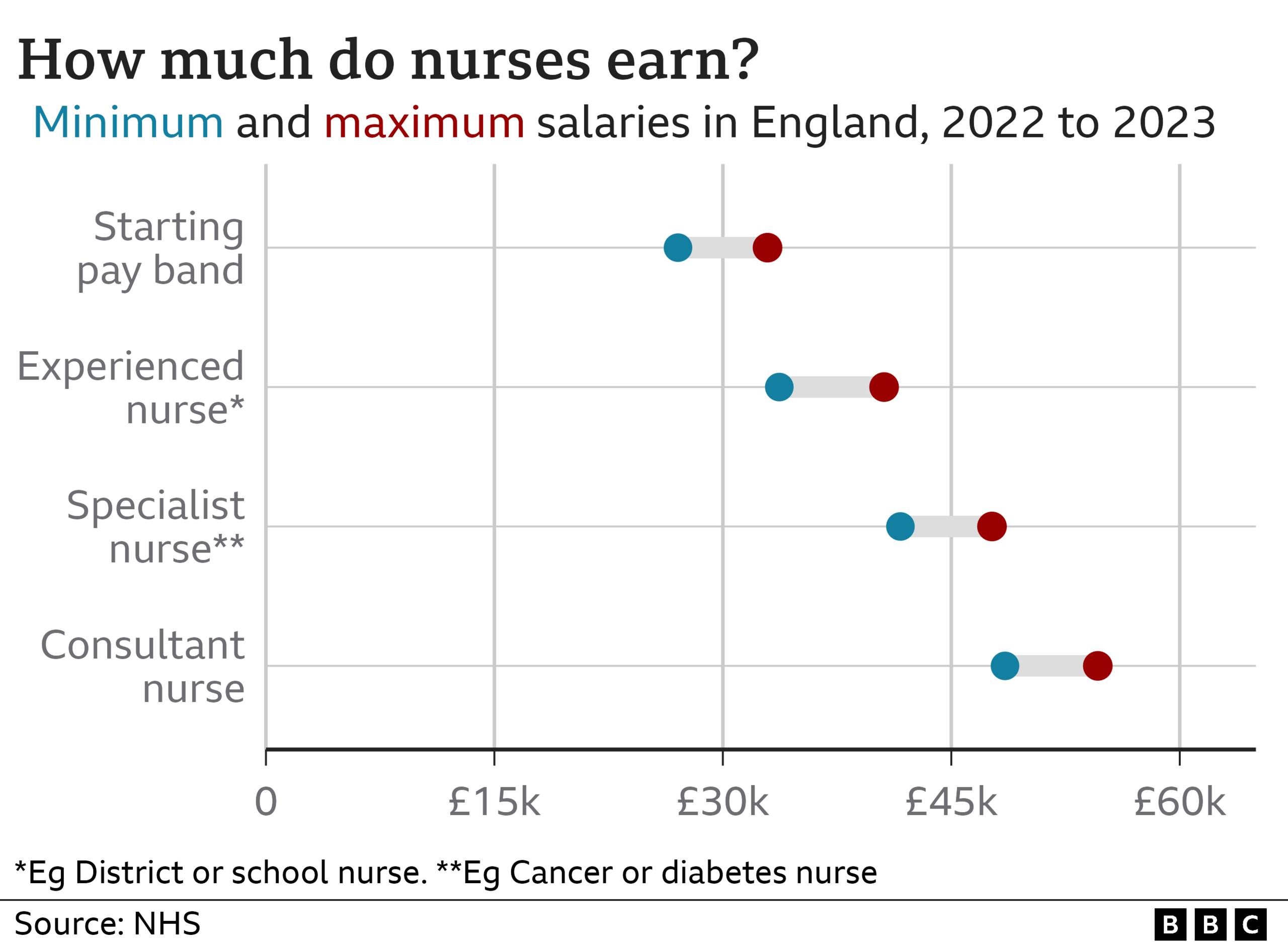
This comes a day after a four-day walkout by junior doctors - who are demanding a 35% pay rise - ended.
On Saturday, the British Medical Association, which represents junior doctors, said it was "not ruling in or out" the prospect of co-ordinated action with other unions.
Asked whether this was a possibility, Ms Cullen said she had no plans for any co-ordinated action.
"But if the government continues to allow doctors and nurses to spend their time on picket lines and not in their places of work in hospitals and communities, then of course the impact of those strikes, whether co-ordinated or not, will be felt by our patients," she added.
NHS bosses have warned a nurses' strike including emergency care staff would "present serious risks and challenges".
Sir Julian Hartley, from NHS Providers, which represents NHS workers, said it would mark an "unprecedented level of action" and warned against a co-ordinated strike with junior doctors.
Liberal Democrat Daisy Cooper said the warning of rolling nurses' strikes up until Christmas "must act as a wake-up call" and ministers should "urgently" find a solution.
In Scotland, union members have accepted an offer worth an average 6.5% for 2023-24. Health unions in Wales and Northern Ireland are still in negotiations with their governments over pay.
The GMB union has recommended that the latest offer be accepted by its members.
Unite has not recommended the pay deal, but says "ultimately it is important that members make the final decision".

Are you a nurse with a view on the strike? Are you a patient affected? Share your experiences by emailing haveyoursay@bbc.co.uk, external.
Please include a contact number if you are willing to speak to a BBC journalist. You can also get in touch in the following ways:
WhatsApp: +44 7756 165803
Tweet: @BBC_HaveYourSay, external
Please read our terms & conditions and privacy policy
If you are reading this page and can't see the form you will need to visit the mobile version of the BBC website to submit your question or comment or you can email us at HaveYourSay@bbc.co.uk, external. Please include your name, age and location with any submission.
- Published15 April 2023
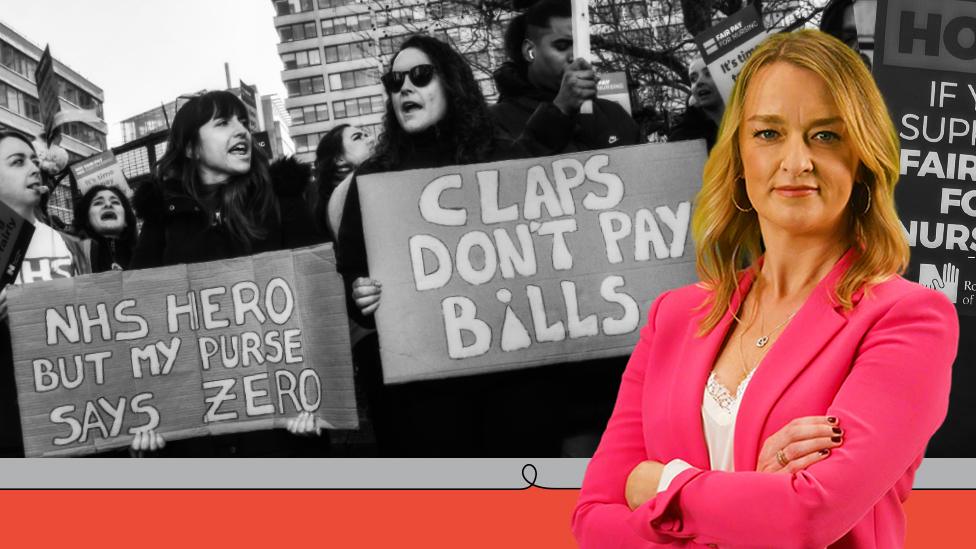
- Published15 April 2023
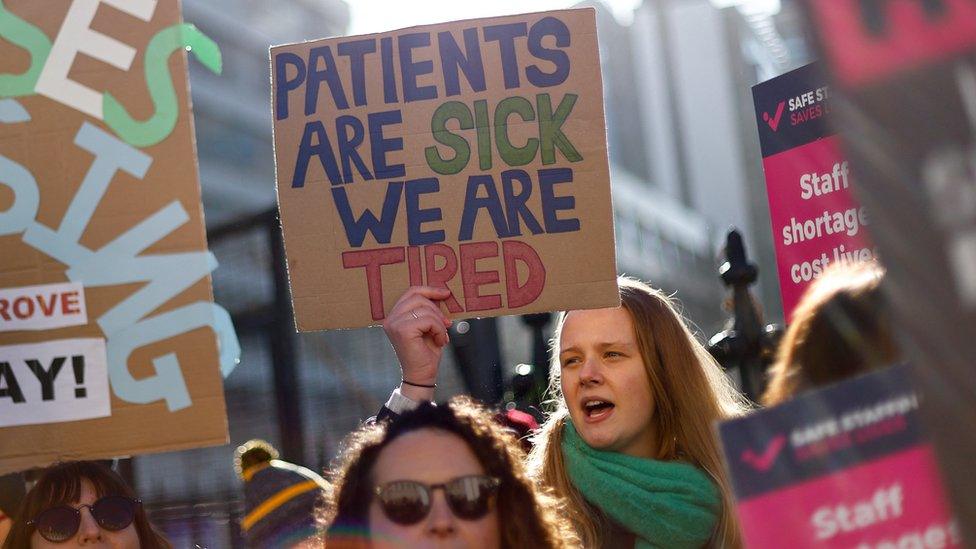
- Published15 April 2023
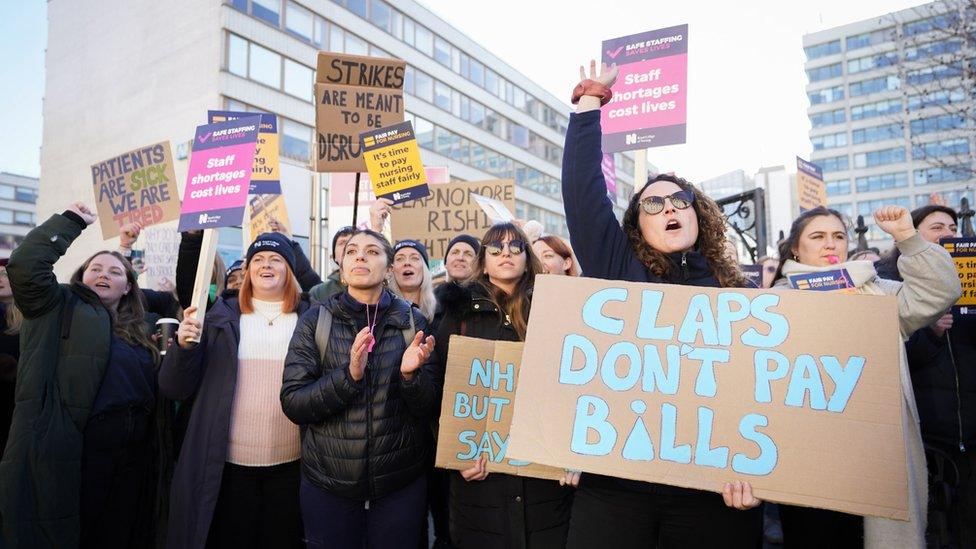
- Published22 December 2022
